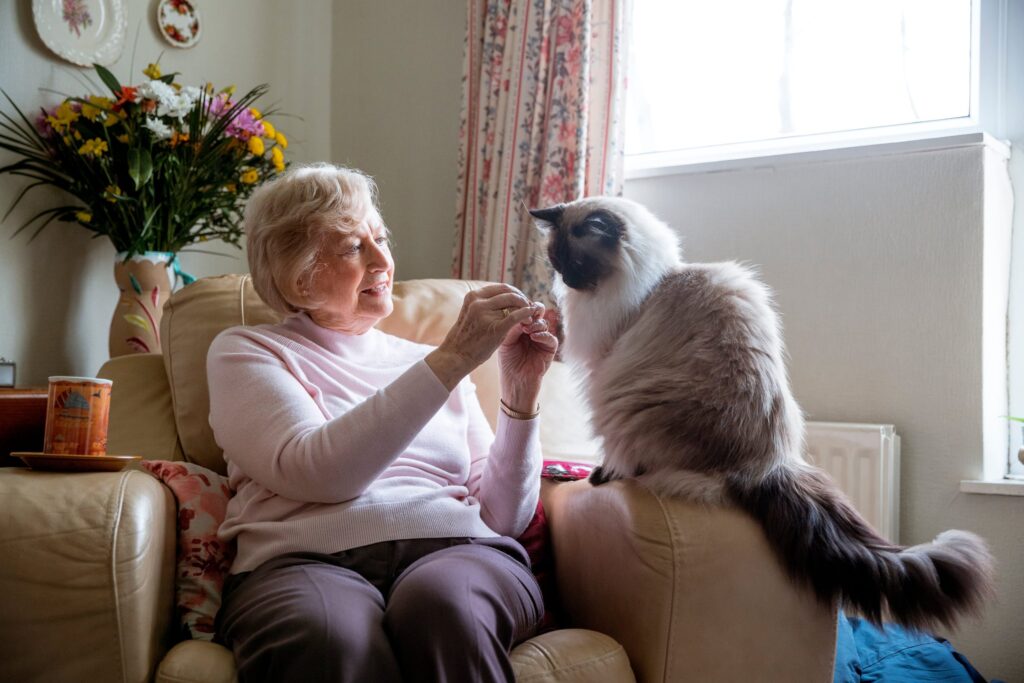There are many reasons why seniors are reluctant to explore assisted living. The most common objection is they don’t want to move out of their home. Here’s what you need to know.
Moving Feels Traumatic
Moving away from a familiar environment can seem daunting to your aging loved one. First, they will be faced with the overwhelming task of organizing, cleaning, discarding, and packing up decades of family history and memories. To you, it may feel like a breath of fresh air to get rid of the things your parent has accumulated but the family no longer needs. To your loved one, it can feel like they’re getting rid of items that are closely linked to their identities, their past, and their memories. Also, consider the fact that maybe your dad spent many years making the lawn spotless and your mom doesn’t want to say goodbye to the house she raised her children in. Why would they want to leave the place that they worked so hard for and that holds decades of treasured memories and belongings? Downsizing and moving to assisted living can leave Mom or Dad feeling like they’re losing control. It’s easy to look at what they’ll lose in the move, rather than what they’ll gain. Seniors also often express anxiety over leaving familiar touch points in their lives, whether it’s a community of people, such as their local church, or a mail carrier they enjoy chatting with each day. Sometimes, moving can feel like so much more than simply moving.
Planning Ahead Makes It Easier
What’s even more difficult for families, however, is trying to make really big decisions in the middle of a crisis or medical emergency. Then, not only are you overwhelmed and under pressure, but you’re also charged with the task of figuring everything out, from where your parents keep their legal documents to where they should receive long-term care. Planning ahead is one of the best ways to cut down on the transitional trauma of moving. As an advocate for your parents, you want to ensure the best life possible for them as they age, which requires starting the search sooner rather than later. Although your parent doesn’t want to move out of their home, the benefits of staying home don’t always outweigh the downsides. Some seniors become isolated and lonely at home. Making the move when there is no emergency and at an earlier age may make for an easier adjustment.
Handling the Objection
If your parent objects to assisted living by saying, “I can’t stand to leave my house,” talk about how comforting it would be to everyone in your family to know that, if an emergency ever happened, you already have a plan ready. Whether or not your parents feel “ready,” there is value in moving to an assisted living community before they need to, too. For example, moving in when they are still active and independent allows them time to be able to be involved in the choice. Try saying something like: “I respect that. However, being prepared is important. If we start now, we can take our time exploring all the options and be certain that you find the right community for you.” Remind them that they’ll be able to bring some of their own special belongings with them to the assisted living community, too. Not only can they create a sense of “home” in their new apartment, but they also won’t have to worry about mowing the lawn, shoveling the snow, or dealing with plumbing issues. Assisted living offers a break from these burdens, allowing seniors the freedom to enjoy their autumn years with others their age. Adjustments take time. The most successful adjustments start before the move. If your loved one feels like they are a part of the decision and they have time to absorb the change emotionally, the move may produce little or no trauma. As you help them transition to a new stage of life, it helps to be prepared with answers to their questions and concerns. For more insights into common objections and strategies for how to handle them, download our eBook The Standoff: Coping With a Parent’s Objections to Assisted Living.

